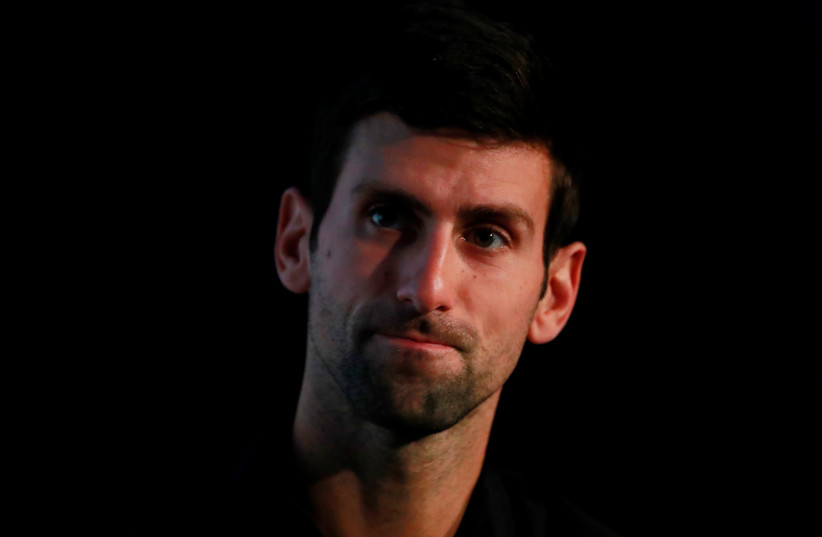Australia's efforts to let the media and public watch tennis superstar Novak Djokovic's court appeal against his visa cancellation descended into farce on Monday as pranksters hijacked the internet links to stream loud music and porn.
Due to coronavirus restrictions, the hearing was conducted virtually, through audiovisual links between the judge's chambers and lawyers for the government and Djokovic.
Minutes before proceedings were due to begin, journalists clicked on a just-expired Microsoft Teams link supplied by the court, unaware that the court had replaced the link. Expecting to see proceedings in real-time, they were instead confronted with pornographic images.
News Corp's head of digital sport, Emily Benammar, observed wryly that the online intruders had at least supplied a missing ingredient in what had become one of Australia's biggest courtroom dramas of recent years.
"Porn: the one thing this whole Djokovic saga had been missing," Benammar said in a tweet.

Australian journalist Sarah Dankert described the ensuing chaos, including some joker groaning "Nole", a diminutive for Novak.
"While there's a public broadcast, there's an old teams link that is still working for the Djokovic case and the court official is gone after having trouble with mute all.
"We've had techno blasting, giggling, shouting and someone is just saying Nole repeatedly in a pained voice."
That link, which had been shared widely on social media in the days prior, had been replaced by a new link, which the court sent around to media. And when the hearing was scheduled to begin, at 10 a.m., the new link led to a website that had crashed due to over-visitation.
The trouble didn't end there. Once the link was back up and running, the court proceedings were accidentally interrupted by a member of the public, who joined the live stream but was not on mute. "We're in," the person said, prompting a rebuke from Judge Anthony Kelly.
"Can I ask whoever is on the screen to mute themselves... the only people who should be online with their microphones are those who are making submissions to the court," Judge Kelly said.
Though some outlets could watch the federal court hearing online, most had to rely on a re-broadcast by a tennis podcast that supplied commentary over the voices of lawyers.
A spokesperson told Reuters the court had adapted quickly to electronic hearings during the pandemic but the Djokovic matter generated "unprecedented public interest" which "expanded beyond the media and subsequently received enormous global public attention".
"As a result ... problems arose with the streaming services that were provided by a third party supplier," the spokesperson said, adding the court took the rare step of publishing a full transcript of proceedings "to ensure access to open justice".
Four hours into the hearing, the court sent around a third link - to its own YouTube channel - just in time for a belated lunch break. After stop-start adjournments lasting three hours, at 5:12 p.m., the link worked, just in time for the final ruling: Djokovic should be free to enter the country.